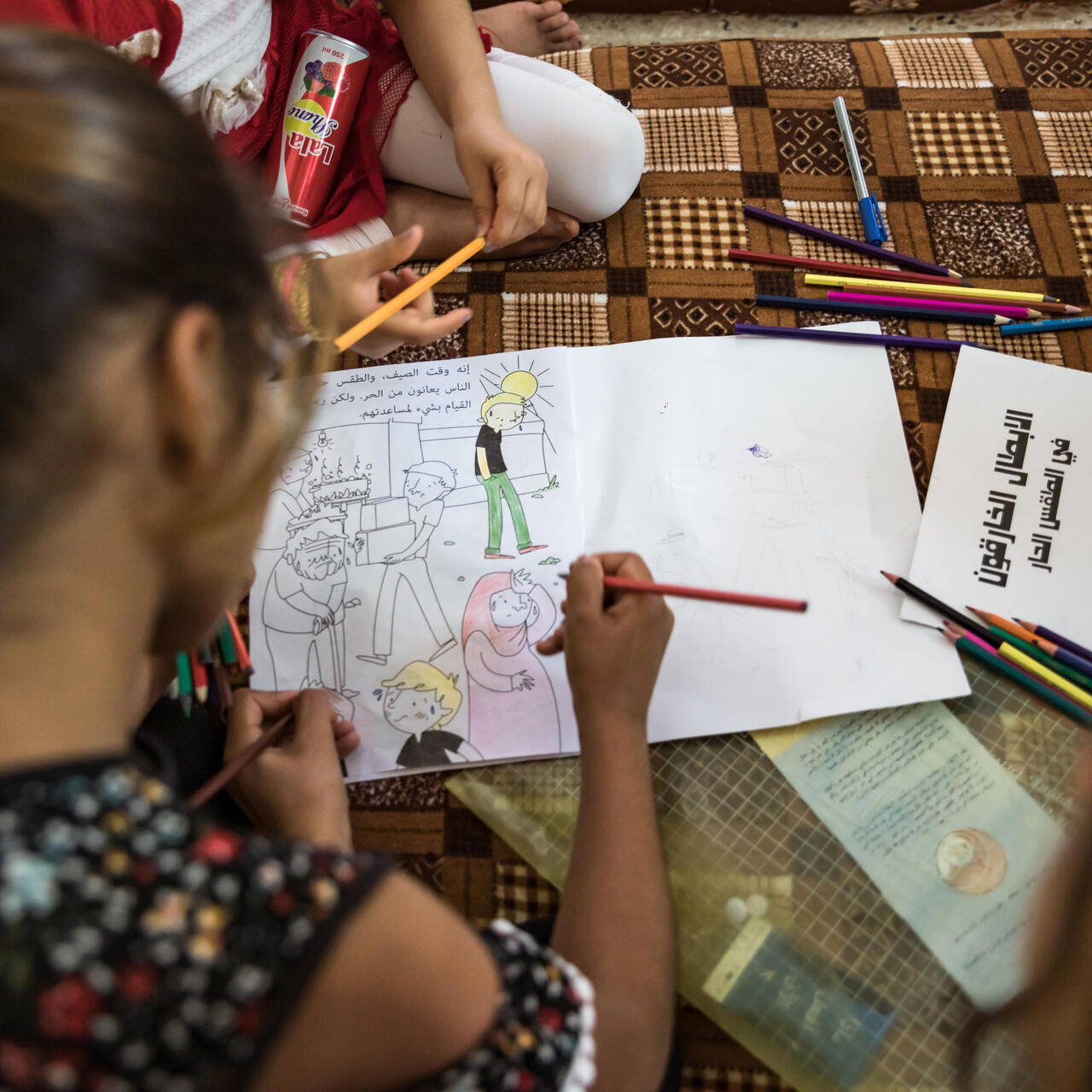
Education is critical in emergency situations. It’s one of the first things parents ask for, but it accounts for less than 3% of all humanitarian aid. As the International Rescue Committee’s senior education policy advisor but also a mother of two young girls who are out of school during the coronavirus pandemic, I now understand this firsthand.
It’s so difficult to see my daughters — four and seven years old — out of school. I worry about their missing out on learning and socialization opportunities during their critical windows of development. Yet as much as I worry about them, I know that children out of school in crisis areas or refugee camps face even greater challenges. But these are challenges that we can meet, wherever we are.
The importance of education during crisis
In times of crisis, education is a lifeline, not a luxury. It provides children with routine and stability, along with the skills they need to heal and learn. Safe educational opportunities that include social-emotional learning and connections to nurturing adults can reduce or reverse the effects of stress caused by crisis and disruption, and build children’s resilience.
During health emergencies, schools also become critical resources for families and children to access health and hygiene information on how to prevent and mitigate illness.
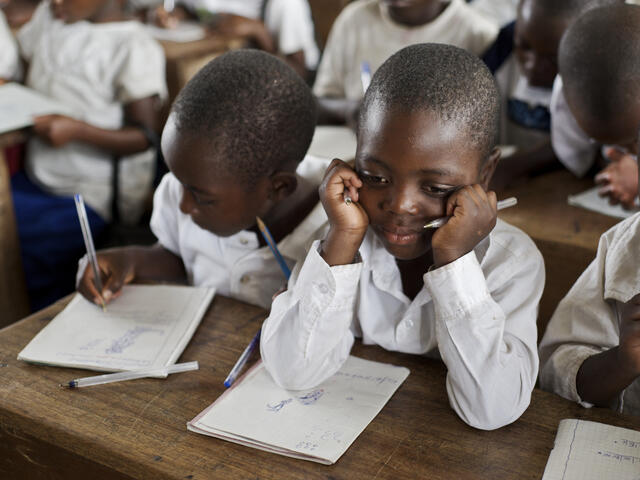
In crisis settings, education also can provide physical protection from violence, abuse and exploitation that children in these contexts may be more vulnerable to.
All too often when children in crisis lose their right to education their wellbeing is at risk. But children are resilient, and love and support from parents can go a long way in building their strength and their ability to cope and thrive.
Tips for parents teaching at home
The IRC has worked with millions of children already out of school because of crisis. Based on our experience, caregivers and teachers can consider these tips to ensure children feel safe and secure, and continue to build the skills necessary to learn and succeed in life when schools are closed:
1. Create a 'healing classroom' at home
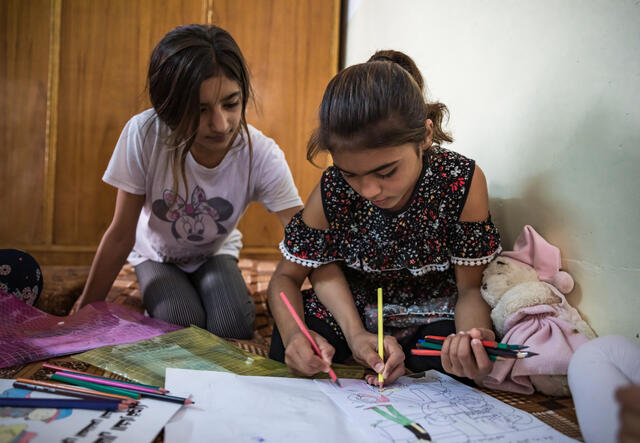
The IRC takes a 'healing classrooms' approach to education, whether in a public school, a community center, or under a tent in a refugee camp. This approach emphasizes ways to create a supportive, nurturing environment to help children cope with crisis and feel comfortable enough to learn.
Parents can build this environment and support children’s wellbeing in simple ways, such as by creating and communicating daily routines to promote a sense of predictability and stability.
My older daughter starts the day with a Spanish read-aloud session that friends and I have organized for our children, and my younger daughter has “circle time” on Zoom each morning with her teachers, where they say the date and weather, read a story, and sing a song. While life feels chaotic and uncertain right now, the children feel secure knowing what to expect every morning.
2. Build social-emotional skills
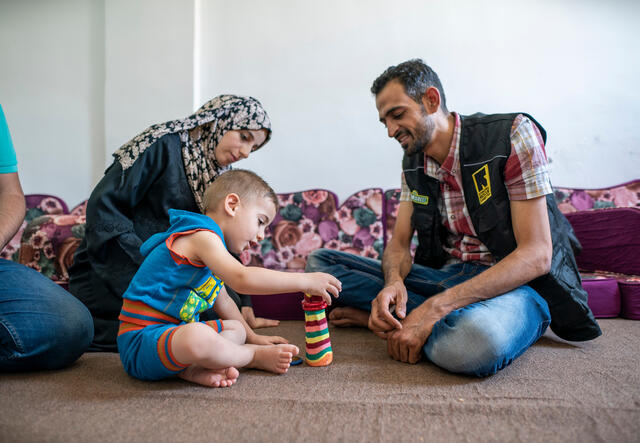
Education isn’t just reading and math; it also encompasses social-emotional skills such as communication and conflict-resolution. These skills support children in learning traditional skills like literacy and numeracy while also helping them foster positive relationships, identify and manage their emotions, and focus, in order to succeed in school and beyond. Social-emotional skills are always important for children to learn—but in times of crisis, they become even more critical.
Play-based learning and games can help children learn to work together, such as by strengthening their communication and collaboration skills. The IRC and Sesame Street, for example, partnered to create new programming for millions of refugee children across the Middle East. Through this initiative, the IRC runs preschools and provides stimulating content that builds social-emotional skills wherever refugee children are, such as when they are visiting health centers with their families.
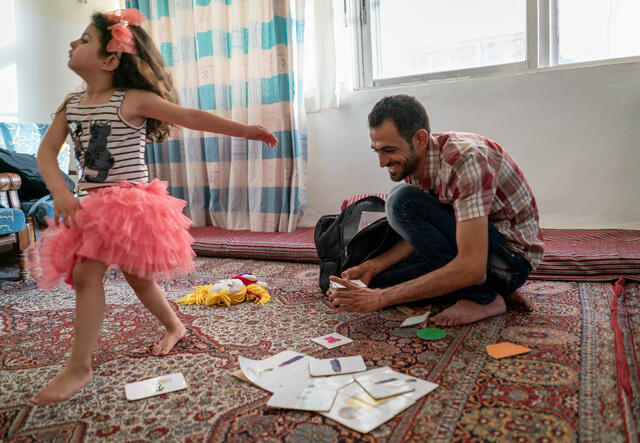
The IRC also visits families to show parents how they can support their children’s brain development by interacting with their children through music and games, and by providing opportunities for both structured and unstructured play.
At home, my children have been spending a lot of time playing games they’ve dreamed up themselves. (They even took their dolls and stuffed animals on a “tour” of our backyard.) I listen to how they are using their make-believe to work out feelings, resolve conflicts and communicate through their characters.
3. Take care of yourself
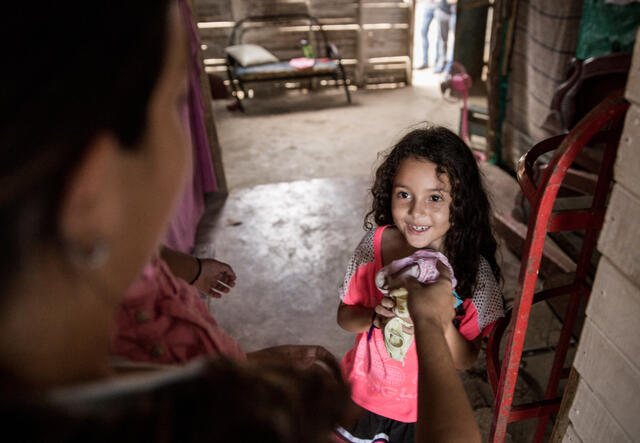
There’s a saying, "A healthy baby begins with a healthy mom," and it’s true. The stress of seeing your children out of school can be significant, especially for parents already struggling during a crisis. Meditation, exercise, connecting online with friends, spending time outdoors each day—these are just a few of the things I try to do to reduce stress day-to-day.
When parents pay attention to their own physical and mental health they are more equipped to respond to their children in the way children need most now: by validating their feelings, reassuring them they are safe, and showing them they are loved.
The next chapter in crisis education
The COVID-19 crisis has shut down schools around the globe: 87% of the world’s children are now out of the classroom.
The IRC has decades of experience reaching children in the most difficult circumstances. We know the benefits of education during a crisis, but when access to school is impossible, caregivers — children’s first teachers — can recreate these benefits at home by providing predictable and nurturing environments, and building social-emotional skills through play and stimulation. Their children’s wellbeing — and futures — depend on it.
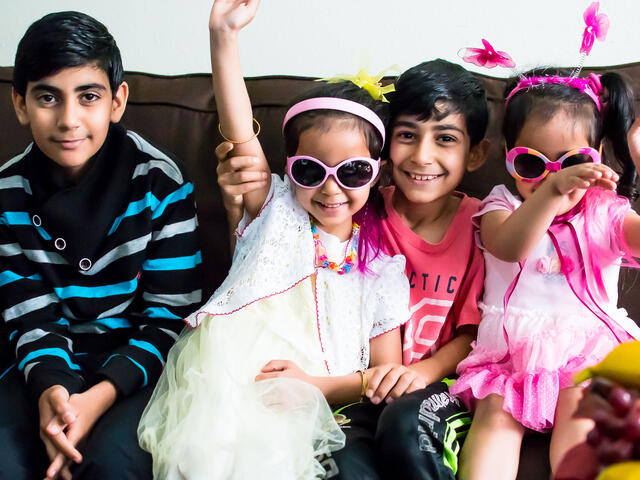
Learn more
The International Rescue Committee provides children, youth and adults affected by conflict and displacement with safe, quality educational opportunities that help them learn the skills they need to survive and thrive. Learn more about our education work worldwide.
The IRC is also scaling up our response to the COVID-19 pandemic, providing lifesaving programs to vulnerable communities in over 40 countries worldwide, including the United States. Read about our coronavirus response.